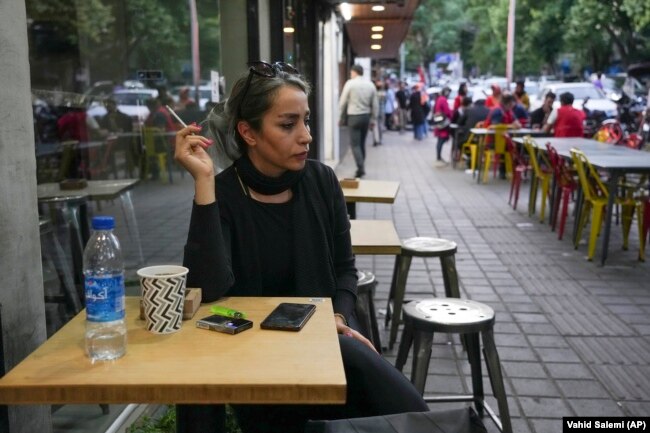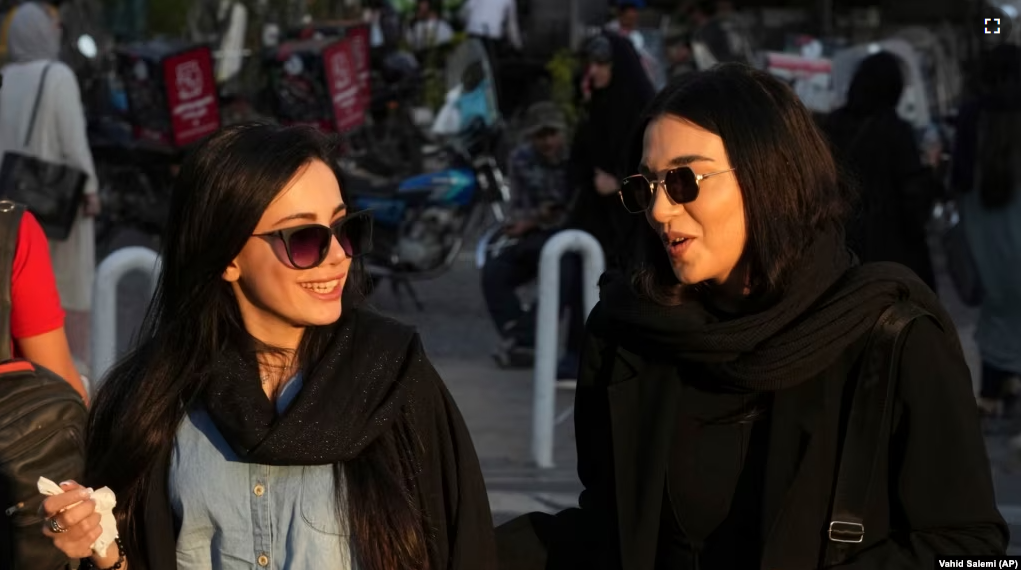More Iranian women are choosing not to wear the head covering called the hijab. Since the early years of Iran’s Islamic Revolution, women have been required to cover their heads by law. Today, many public signs urge women to wear head coverings to honor their mothers.
In recent weeks, the Iranian government has increased efforts to enforce its law requiring women to wear the hijab.
It has closed some businesses for serving women not covering their heads. The government also has given warnings in public places and sent text message warnings to drivers carrying women without head coverings.
More women have chosen not to wear the hijab after months of protests following the death of 22-year-old Mahsa Amini. Amini died in September 2022 while being detained by police for wearing her hijab too loosely in public.
Some women say they are fighting for more freedom in Iran and for a better future for their daughters. They also say the government will not be able to enforce the hijab law if more women refuse to wear it.
“Do they want to close down all businesses?” said Shervin, a 23-year-old student in Tehran. “If I go to a police station, will they shut it down too?”
However, the women worry about risk. The women who spoke to the Associated Press only gave their first names because they feared punishment.
Vida is 29. She said a decision by her and two of her friends to stop covering their hair in public is about more than headscarves.
“This is a message for the government, leave us alone,” she said.

Before September, it was rare to see women without hijabs. Today, it is common in some areas of Tehran to see women without them.
Many Muslim women wear the hijab as a sign of respect for God and modesty in front of men outside of their families.
Before the 1979 Revolution, many middle- and upper-class women chose not to wear the hijab. In 1983, head coverings in public became required by law. Punishments for breaking the hijab law include fines and up to two months in prison.
In early April, Iran’s Supreme Leader Ayatollah Ali Khamenei declared that “removing the hijab is not Islamically or politically permissible.”
He also claimed that “enemy spies” were the ones pushing women not to wear the hijab.
On April 25, officials closed a large shopping mall in northern Tehran for several days. The move came after women with their hair showing were seen spending time with men in a bowling alley.
“It is a collective punishment,” said Nodding Kasra, a 32-year-old salesman at a clothing shop in the mall. “They closed a mall with hundreds of workers over some customers’ hair?”
The reformist Iranian newspaper Shargh said police have shut down over 2,000 businesses across the country over admitting women not wearing the hijab.
Some experts warn that business owners might push back against the government.
However, there are signs the government might enforce the rules even more severely.
Government offices no longer provide services to women not covering their hair, after some had in recent months.
Some religious leaders said the government should use soldiers, as well as the all-volunteer Basij force of Iran’s paramilitary Revolutionary Guard, to enforce the hijab law.
Police also said cameras with “artificial intelligence” will find women not wearing their head covering. However, it is unclear if such a system is currently working.
Thirty-three-year-old Sorayya said she is already fighting for a bigger goal by going without a headscarf.
“I don’t want my daughter to be under the same ideologic pressures that I and my generation lived through,” she said. “This is for a better future for my daughter.”
I’m Andrew Smith. And I’m Jill Robbins.
Nasser Karimi and Jon Gambrell wrote this story for The Associated Press. Andrew Smith adapted it for VOA Learning English.
___________________________________________________________________
Words in This Story
headscarf (headscarves pl.) –n. a cloth covering worn on the head by women and girls
modesty –n. the quality of being restrained in a way that observes norms; not acting in a proud or a way to get attention
ideological –adj. related to a group of ideas that are held by a group or a political party
